Cortes and Montezuma
[Thanks to JBenet & Fernando from the Sam Seder Show blog for this link]
by Donald Barthelme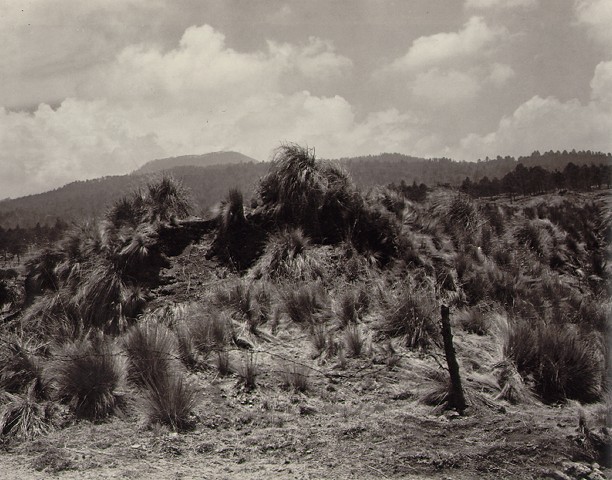
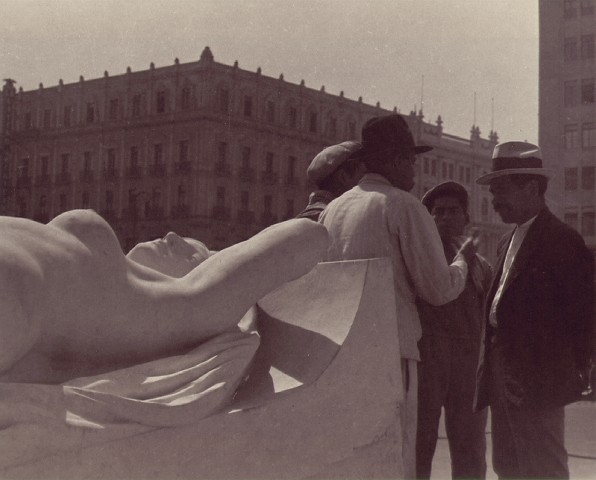
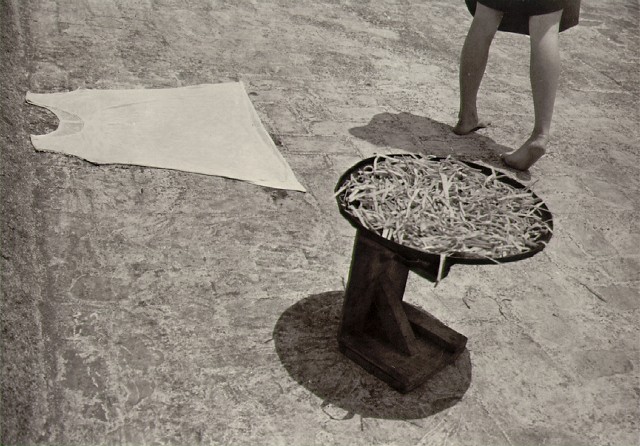
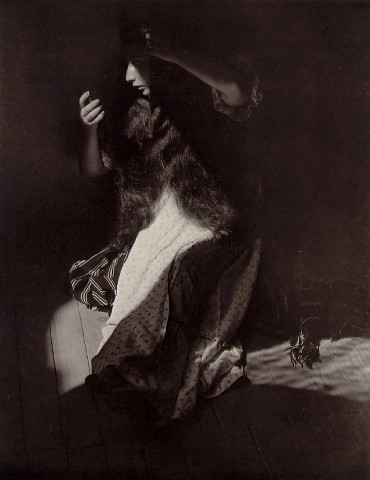
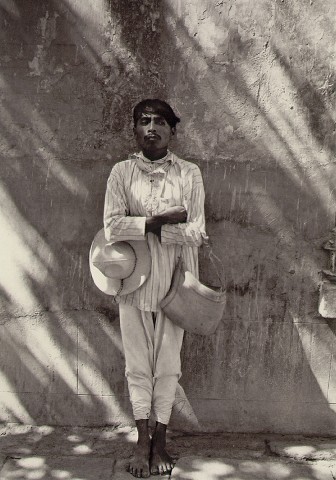
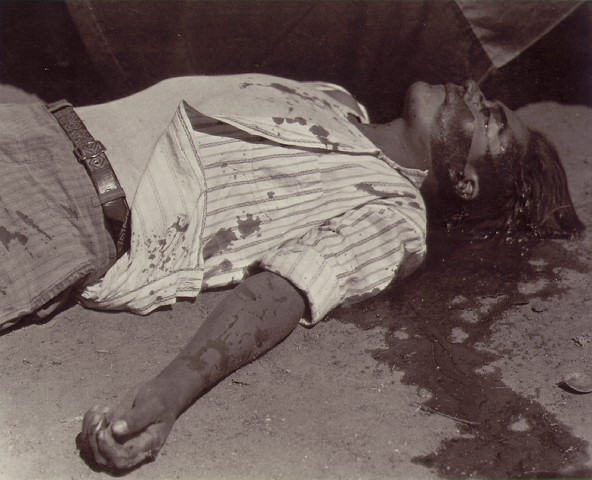
by Donald Barthelme

Because Cortes lands on a day specified in the ancient writings, because he is dressed in black, because his armor is silver in color, a certain ugliness of the strangers taken as a group-for these reasons, Montezuma considers Cortes to be Quetzalcoatl, the great god who left Mexico many years before, on a raft of snakes, vowing to return.
Montezuma gives Cortes a carved jade drinking cup.
Cortes places around Montezuma's neck a necklace of glass beads strung on a cord scented with musk. Montezuma offers Cortes an earthenware platter containing small pieces of meat lightly breaded and browned which Cortes declines because he knows the small pieces of meat are human fingers.
Cortes sends Montezuma a huge basket of that Spanish bread of which Montezuma's messengers had said, on first encountering the Spaniards, "As to their food, it is like human food, it is white and not heavy , and slightly sweet. .."
Cortes and Montezuma are walking, down by the docks. Little green flies fill the air. Cortes and Montezuma are holding hands; Montezuma receives new messages, in picture writing, from the hills. These he burns, so that Cortes will not learn their contents. Cortes is trimming his black beard.Dona Marina, the Indian translator, is sleeping with cortes in the palace given him by Montezuma. Cortes awakens; they share a cup of chocolate. She looks tired, Cortes thinks. Down by the docks, Cortes and Montezuma walk, holding hands. "Are you acquainted with a Father Sanchez?" Montezuma asks. "Sanchez, yes, what's he been up to?" says Cortes. "Overturning idols," says Montezuma. "Yes," Cortes says vaguely, "yes, he does that, everywhere we go." At a concert later that evening, Cortes is bitten on the ankle by a green insect. The bug crawls into his velvet slipper. Cortes removes the slipper, feels around inside, finds the bug and removes it. "Is this poisonous?" he asks Dona Marina. "Perfectly," she says. Montezuma himself performs the operation upon Cortes's swollen ankle. He lances the bitten place with a sharp knife, then sucks the poison from the wound, spits. Soon they are walking again, down by the docks. Montezuma writes, in a letter to his mother: "The new forwardness of the nobility has come as a welcome relief. Whereas formerly members of the nobility took pains to hide among the general population, to pretend that they were ordinary people, they are now flaunting themselves and their position in the most disgusting ways. Once again they wear scarlet sashes from shoulder to hip, even on the boulevards; once again they prance about in their great powdered wigs; once again they employ lackeys to stand in pairs on little shelves at the rear of their limousines. The din raised by their incessant visiting of one another is with us from noon until early in the morning…" "This flagrant behavior is, as I say, welcome. For we are all tired of having to deal with their manifold deceptions, of uncovering their places of concealment, of keeping track of their movements-in short, of having to think about them, of having to remember them. Their new assertiveness, however much it reminds us of the excesses of former times, is easier. The interesting question is, what has emboldened the nobility to emerge from obscurity at this time? Why now? "Many people here are of the opinion that it is a direct consequence of the plague of devils we have had recently. It is easily seen that, against a horizon of devils, the reappearance of the nobility can only be considered a more or less tolerable circumstance-they themselves must have realized this. Not since the late years of the last Bundle have we had so many spitting, farting, hair-shedding devils abroad. Along with the devils there have been roaches, roaches big as ironing boards. Then, too, we have the Spaniards…"

A group of great lords hostile to Montezuma holds a secret meeting in Vera Cruz, under the special protection of the god Smoking Mirror. Debate is fierce; a heavy rain is falling; new arrivals crowd the room. Dona Marina, although she is the mistress of Cortes, has an Indian lover of high rank as well. Making her confession to Father Sanchez, she touches upon this. "His name is Cuitlahuac? This may be useful politically. I cannot give you absolution, but I will remember you in my prayers." In the gardens of Tenochtitlan, whisperers exchange strange new words: guillotine, white pepper, sincerity, temperament. Cortes's men break through many more walls but behind these walls they find, invariably, only the mummified carcasses of dogs, cats, and sacred birds. Down by the docks, Cortes and Montezuma walk, holding hands. Cortes has employed a detective to follow Montezuma; Montezuma has employed a detective to follow Father Sanchez. "There are only five detectives of talent in Tenochtitlan," says Montezuma. "There are others, but I don't use them. Visions are best-better than the best detective." Atop the great Cue, or pyramid, Cortes strikes an effigy of the god Blue Hummingbird and knocks off its golden mask; an image of the Virgin is installed in its place. "The heads of the Spaniards," says Dona Marina, "Juan de Escalante and the five others, were arranged in a row on a pike. The heads of their horses were arranged in another row on another pike, set beneath the first." Cortes screams. The guards run in, first Crist6bal de Olid, and following him Pedro de Alvarado and then de Ordas and de Tapia. Cortes is raving. He runs from the palace into the plaza where he meets and is greeted by Montezuma. Two great lords stand on either side of Montezuma supporting his arms, which are spread wide in greeting. They fold Montezuma's arms around Cortes. Cortes speaks urgently into Montezuma's ear. Montezuma removes from his bosom a long cactus thorn and pricks his ear with it repeatedly, until the blood flows. Dona Marina is walking, down by the docks, with her lover Cuitlahuac, Lord of the Place of the Dunged Water. "When I was young," says Cuitlahuac, "I was at school with Montezuma. He was, in contrast to the rest of us, remarkably chaste. A very religious man, a great student-I'll wager that's what they talk about, Montezuma and Cortes. Theology." Dona Marina tucks a hand inside his belt, at the back. Bemal Diaz del Castillo, who will one day write The True History of the Conquest of New Spain, stands in a square whittling upon a piece of mesquite. The Proclamation of Vera Cruz is read, in which the friendship of Cortes and Montezuma is denounced as contrary to the best interests of the people of Mexico, born and yet unborn. Cortes and Montezuma are walking, down by the docks. "I especially like the Holy Ghost. Qua idea, "says Montezuma. "The other God, the Father, is also—" "One God, three Persons," Cortes corrects gently. "That the Son should be sacrificed: Montezuma continues, "seems to me wrong. It seems to me He should be sacrificed to. Furthermore," Montezuma stops and taps Cortes meaningfully on the chest with a brown forefinger, "where is the Mother?" Bernal asks Montezuma, as a great favor, for a young pretty woman; Montezuma sends him a young woman of good family, together with a featherwork mantle, some crickets in cages, and a quantity of freshly made soap. Montezuma observes, of Hemal, that "he seems to be a gentleman."

"The ruler prepares dramas for the people," Montezuma says. Cortes, sitting in an armchair, nods."Because the cultivation of maize requires on the average only fifty days' labor per person per year, the people's energies may be invested in these dramas—for example the eternal struggle to win, to retain, the good will of Smoking Mirror, Blue Hummingbid, Quetzalcoatl…"
Cortes smiles and bows.
"Easing the psychological strain on the ruler who would otherwise be forced to face alone the prospect of world collapse, the prospect of the world folding in on itself…"
Cortes blinks.
If the drama is not of my authorship, if events are n controllable by me—"
Cortes has no reply."Therefore it is incumbent upon you, dear brother, to disclose to me the ending or at least what you know of the drama's probable course so that I may attempt to manipulate it in a favorable direction with the application of what magic is left to me." Cortes has no reply. Breaking through a new wall, Cortes's men discover, on the floor of a chamber behind the wall, a tiny puddle of gold. The proclamation is circulated throughout the city; is sent to other cities. Bernal builds a stout hen coop for Dona Marina. The sky over Tenochtitlan darkens; flashes of lightning; then rain sweeping off the lake. Down by the docks, Cortes and Montezuma take shelter in a doorway. "Dona Marina translated it; I have a copy," says Cortes. "When you smashed Blue Hummingbird with the crowbar—" "I was rash. I admit it." "You may take the gold with you. All of it. My gift." "Your Highness is most kind." "Your ships are ready. My messengers say their sails are as many as the clouds over the water." "I cannot leave until all of the gold in Mexico, past, present and future, is stacked in the holds." "Impossible on the face of it." "I agree. Let us talk of something else." Montezuma notices that a certain amount of white lint has accumulated on his friend's black velvet doublet. He thinks: She should take better care of him.

In bed with Cortes, Dona Marina displays for his eyes her beautiful golden buttocks, which he strokes reverently. A tiny green fly is buzzing about the room; Cortes brushes it away with a fly whisk made of golden wire. She tells him about a vision. In the vision Montezuma is struck in the forehead by a large stone, and falls. His enraged subjects hurl more stones.
"Don't worry," says Cortes. "Trust me."Father Sanchez confronts Cortes with the report of the detective he has hired to follow Dona Marina, together with other reports, documents, photographs. Cortes orders that all of the detectives in the city be arrested, that the profession of detective be abolished forever in Tenochtitlan, and that Father Sanchez be sent back to Cuba in chains. In the marketplaces and theaters of the city, new words are passed about. tranquillity, vinegar, entitlement, schnell. On another day Montezuma and Cortes and Dona Marina and the guard of Cortes and certain great lords of Tenochtitlan leave their palaces and are carried in palanquins to the part of the city called Cotaxtla. There, they halt before a great house and dismount. "What is this place?" Cortes asks, for he has never seen it before. Montezuma replies that it is the meeting place of the Aztec councilor legislature which formulates the laws of his people. Cortes expresses surprise and states that it had been his understanding that Montezuma is an absolute ruler answerable to no one—a statement Dona Marina tactfully neglects to translate lest Montezuma be given offense by it. Cortes, with his guard at his back and Montezuma at his right hand, enters the building. At the end of a long hallway he sees a group of functionaries each of whom wears in his ears long white goose quills filled with powdered gold. Here Cortes and his men are fumigated with incense from large pottery braziers, but Montezuma is not, the major-domos fix their eyes on the ground and do not look at him but greet him with great reverence saying, "Lord, my Lord, my Great Lord."

The party is ushered through a pair of tall doors of fragrant cedar into a vast chamber hung with red and yellow banners There, on low wooden benches divided by a broad aisle, sit the members of the council, facing a dais. There are perhaps three hundred of them, each wearing affixed to his buttocks a pair of mirrors as is appropriate to his rank. On the dais are three figures of considerable majesty, the one in the center raised somewhat above his fellows; behind them, on the wall, hangs a great wheel of gold with much intricate featherwork depicting a whirlpool with the features of the goddess Chalchihuitlicue in the center. The council members sit in attitudes of rigid attention, arms held at their sides, chins lifted, eyes fixed on the dais. Cortes lays a hand on the shoulder of one of them, then recoils. He raps with his knuckles on that shoulder which gives forth a hollow sound. "They are pottery," he says to Montezuma. Montezuma winks. Cortes begins to laugh. Montezuma begins to laugh. Cortes is choking, hysterical. Cortes and Montezuma run around the great hall, dodging in and out of the rows of benches, jumping into the laps of one or another of the clay figures, overturning some, turning others backwards in their seats. "I am the State!" shouts Montezuma, and Cortes shouts, "Mother of God, forgive this poor fool who doesn't know what he is saying!" In the kindest possible way, Cortes places Montezuma under house arrest. "Best you come to stay with me a while." "Thank you but I'd rather not." "We'll have games and in the evenings, home movies." "The people wouldn't understand." "We've got Pitalpitoque shackled to the great chain." "I thought it was Quintalbor." "Pitalpitoque, Quintalbor, Tendile." "I'll send them chocolate." "Come away, come away, come away with me." "The people will be frightened." "What do the omens say?" "I don't know I can't read them anymore." "Cutting people's hearts out, forty, fifty, sixty at a crack." "It's the custom around here." "The people of the South say you take too much tribute." "Can't run an empire without tribute." "Our Lord Jesus Christ loves you." "I'll send Him chocolate." "Come away, come away, come away with me."

Down by the docks, Cortes and Montezuma are walking with Charles V, Emperor of Spain. Dona Marina follows at a respectful distance carrying two picnic baskets containing many delicacies: caviar, white wine, stuffed thrushes, gumbo. Charles V bends to hear what Montezuma is saying; Cortes brushes from the person of the Emperor little green flies, using a fly whisk made of golden wire. "Was there no alternative?" Charles asks. "I did what I thought best," says cortes, "proceeding with gaiety and conscience. "I am murdered," says Montezuma.
The sky over Tenochtitlan darkens; flashes of lightning; then rain sweeping off the lake. The pair walking down by the docks, hand in hand, the ghost of Montezuma rebukes the ghost of Cortes, "Why did you not throw up your hand, and catch the stone?"
© Copyright Donald Barthelme, 1981. All Rights Reserved. No portion of this work may be reproduced or transmitted in any form or by any means, electronic or mechanical, including photocopying, recording, or any information storage or retrieval system now or hereafter invented, without permission in writing from the Publisher.
Art & Lit Barthelme Home


0 Comments:
Post a Comment
Subscribe to Post Comments [Atom]
<< Home